Short version: I want my program to be able to (read-only-)access its own source code during runtime. Is there a way to automatically package the source code into the dll during compilation?
Long version:
The background is that when an exception occurs, I want to automatically create a file containing some details of what happened. This file should, among other things, include the source code of the function that caused the problem. I want to send this file to other people by email, and the receiver will most likely not have (or not want to install) Visual Studio, so anything using symbol servers and the likes is out of question. It needs to be a plain text file.
Ideally I would somewhere find the related source code files and just copy out the relevant lines. You can safely assume that as long as I have a folder containing the entire source code, I will be able to locate the file and lines I want.
The best idea I could come up with so far -- and I have not looked into it in much detail because it seems messy to no end -- is to modify the MSBuild files to create a .zip of the source during compilation, and require .dll and .zip to reside in the same folder.
Most of the similar-sounding questions on stackoverflow that I found seem to deal with decompiling .dll files, which is not what I want to do. I have the source code, and I want to ship it together with the .dll in a convenient way.
Update: The really long version
Seems some people are seriously questioning why I would want to do that, so here's the answer: The main purpose of my software is testing some other software. That other software has a GUI. For an easy example, let's say the other software were the standard Windows calculator, then my testcase might look something like this:
calculator.Open();
calculator.EnterValue(13);
calculator.PressButtonPlus();
calculator.EnterValue(38);
calculator.PressButtonEnter();
int value = calculator.GetDisplayedValue();
Assert.That(value == 51);
calculator.Close();
These tests are intentionally written in a very human-readable way.
What I want to do when a problem occurs is to give the developer of the calculator a detailed description of how to reproduce the problem, in a way that he could reproduce by hand, without my software. (In this example, he would open the calculator, enter 13, press plus, and so on.)
Maybe another option would be to have each function calculator.Something() write out an information line to a log, but that would a) be a lot more work, b) only include the test run up to the point where it aborted, and c) bear some risk that writing the line is forgotten in one function, thereby giving an incorrect representation of what was done. But I'm open to other solutions than copying source code.
